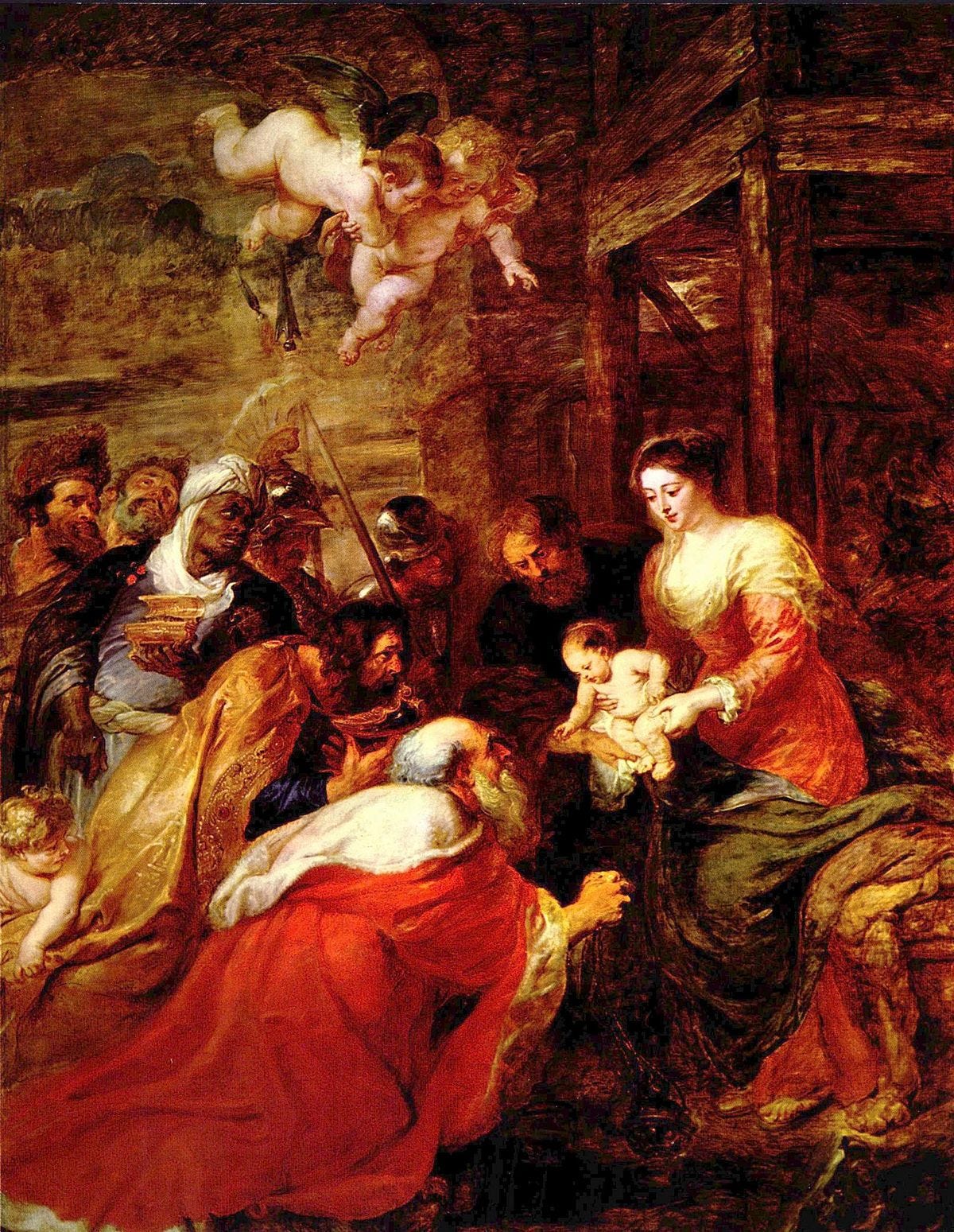January 6th marks the Epiphany, celebrating the adoration of the Magi. The word Epiphany means to manifest, to appear. Whether dawn or deity. What has appeared to the Magi was the hope of the world manifested as a babe in the manger. Below is the painting by Peter Paul Rubens that hangs in King’s College Chapel in Cambridge. I saw it in person some time ago and was very moved. I have always loved the story of the Magi and recorded a version of We Three Kings to benefit the Special Olympics, which I have included below. Also remembering Joan of Arc on her birthday I crossposted Jesse’s wonderful piece honoring her. I am returning home and will see you soon, back in headquarters…..
Discussion about this post
No posts





I’ve lost yet another message and am so frustrated. Friends here have advised me to write my response elsewhere and copy and paste it. I think it’s hard for me to do that because I formulate my response to what Patti has posted and the responses of the community by writing in this space. If I write it elsewhere it feels unconnected to the dialogue. I’m so frustrated. I’ll try to replicate it but please forgive typos because I’m tired. I wish Substack would stop eating comments!
Thank you for writing Patti, and especially for your beautiful version of “We Three Kings.” And for the painting which js very moving.
I saw on Jesse's post that you were wrestling with something in your work.
I'm sorry that you are, but am not in the least worried. For what it's worth, I remind you of Wallace Stevens's words:
We must endure our thoughts all night, until
The bright obvious stands motionless in cold.
I am confident that the bright obvious will come forth, Patti. Be not afraid. You were born to do this.
With greetings to all for the Epiphany, I include T.S. Eliot’s “Journey of the Magi,” a dramatic monologue in the tradition of Browning spoken in the first person by one of the magi.
Instead of being exalted, the magus complains about the trip, the physical hardship, sharp weather, camels galled, villages dirty and charging high prices. He says a hard time they had of it. He speaks of regret, folly, and when they finally arrive, he finds it “was (you may say) satisfactory.”
T.S. Eliot (think “Prufrock”), master of doubt and understatement, “covering” such a momentous occasion is a fascinating undertaking. Interestingly, the magus doesn’t give details of the arrival in Bethlehem and we get no image of the newborn Jesus. The magus sees that the world has forever changed and though the magi have made the arduous trip, they aren’t privy to the new vision. In the end he acknowledges that there was a birth but adds that there was also a death. The ambivalence at the end is to me si moving. The magus says he would do it again but this new order is not for them: for them it is a death. I hope it’s of interest to some.
With warm wishes to all, as ever,
Robin
JOURNEY OF THE MAGI
‘A cold coming we had of it,
Just the worst time of the year
For a journey, and such a long journey:
The ways deep and the weather sharp,
The very dead of winter.’
And the camels galled, sore-footed, refractory,
Lying down in the melting snow.
There were times we regretted
The summer palaces on slopes, the terraces,
And the silken girls bringing sherbet.
Then the camel men cursing and grumbling
And running away, and wanting their liquor and women,
And the night-fires going out, and the lack of shelters,
And the cities hostile and the towns unfriendly
And the villages dirty and charging high prices:
A hard time we had of it.
At the end we preferred to travel all night,
Sleeping in snatches,
With the voices singing in our ears, saying
That this was all folly.
Then at dawn we came down to a temperate valley,
Wet, below the snow line, smelling of vegetation;
With a running stream and a water-mill beating the darkness,
And three trees on the low sky,
And an old white horse galloped away in the meadow.
Then we came to a tavern with vine-leaves over the lintel,
Six hands at an open door dicing for pieces of silver,
And feet kicking the empty wine-skins,
But there was no information, and so we continued
And arrived at evening, not a moment too soon
Finding the place; it was (you may say) satisfactory.
All this was a long time ago, I remember,
And I would do it again, but set down
This set down
This: were we led all that way for
Birth or Death? There was a Birth, certainly,
We had evidence and no doubt. I had seen birth and death,
But had thought they were different; this Birth was
Hard and bitter agony for us, like Death, our death.
We returned to our places, these Kingdoms,
But no longer at ease here, in the old dispensation,
With an alien people clutching their gods.
I should be glad of another death.
- TS Eliot
I am descended from Joan of Arc! My grandparents had paperwork proving it, but it was lost in WWII.